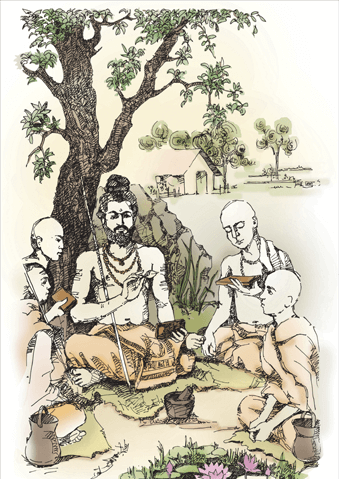How Ayurveda Integrates with Modern Medicine for Optimal Health
How Ayurveda Integrates with Modern Medicine for Optimal Health
Blog Article
Why You Have to Obtain It: The Transformative Power of Ayurveda Explained
Ayurveda, a time-honored system of medication, provides an unique perspective on health and wellness that goes beyond mere signs and symptom administration. As we discover the core concepts and methods of Ayurveda, it ends up being noticeable that its transformative prospective extends much past conventional wellness standards-- elevating the question of exactly how it could reshape your understanding of health.
Understanding Ayurveda's Core Principles
Ayurveda, frequently called the "scientific research of life," is rooted in an alternative technique to health that intertwines the physical, psychological, and spiritual measurements of well-being. Central to Ayurveda are the principles of the 5 components, recognized as "Pancha Mahabhuta," which make up planet, water, fire, air, and ether. These elements incorporate to create three primary energies, or "doshas": Vata, Pitta, and Kapha, each standing for different mixes of psychological and physical characteristics.


Comprehending these doshas is crucial for recognizing a person's unique constitution, or "Prakriti," which guides personalized wellness methods. Ayurveda stresses equilibrium, advocating for a way of life that harmonizes these powers via diet plan, organic remedies, and day-to-day routines. In addition, Ayurvedic concepts insist that health is not just the lack of disease however a state of ideal vitality.
The technique of mindfulness and self-awareness is basic, motivating people to establish a much deeper link with their bodies and the atmosphere. By recognizing the interplay of physical and psychological factors, Ayurveda promotes a thorough understanding of health that equips people to organize their well-being, fostering a course towards all natural improvement.
Advantages of Ayurvedic Practices
Frequently integrating Ayurvedic techniques into day-to-day life can yield a wide range of advantages that improve overall well-being. These time-honored practices focus on achieving consistency within the spirit, body, and mind, leading to boosted physical wellness, psychological clearness, and emotional equilibrium.
One significant benefit of Ayurvedic practices is their capability to promote digestion wellness. Customized dietary recommendations, based upon a person's dosha, can enhance nutrient absorption and minimize intestinal problems. In addition, Ayurvedic herbs and seasonings, such as turmeric and ginger, possess anti-inflammatory homes that can assist in the avoidance and monitoring of persistent illness.
Furthermore, Ayurvedic methods emphasize the value of day-to-day regimens, recognized as dinacharya, which foster stability and predictability in one's life. This uniformity can decrease stress levels and boost performance. Mindfulness methods, including meditation and yoga, not only cultivate psychological strength but also enhance psychological policy.
Lastly, by cultivating a link to nature and emphasizing all natural living, Ayurveda motivates people to participate in self-care and grow a feeling of neighborhood. On the whole, the integration of Ayurvedic techniques can lead to a more balanced, dynamic, and meeting life.
Trick Components of Ayurvedic Recovery
What are the basic elements that contribute to the efficiency of Ayurvedic healing? At the core of Ayurveda lie three key parts: the principle of doshas, the focus on balance, and the all natural strategy to health. The doshas-- Vata, Pitta, and Kapha-- represent the one-of-a-kind mixes of the five aspects that govern private constitutions. Comprehending one's dosha is crucial for customizing therapies that recover balance and advertise wellness.
Equilibrium is a reoccuring theme in Ayurvedic healing, showing the idea that health and wellness arises from harmony within the body and between the individual and their environment. Interruption of this equilibrium can bring about condition, demanding targeted interventions to recover stability.
In addition, Ayurveda welcomes an alternative strategy, thinking about physical, mental, and spiritual facets of health and wellness. This thorough perspective identifies that emotional wellness and lifestyle choices considerably influence physical wellness.
Integrating Ayurveda Into Every Day Life
Integrating the principles of Ayurveda right into daily life can substantially boost overall wellness and advertise a deeper connection to one's body and atmosphere. By taking on Ayurvedic practices, people can grow equilibrium and harmony within themselves, adapting to their distinct constitution or dosha.

Integrating natural remedies and natural active ingredients right into personal treatment routines can additionally strengthen Ayurvedic concepts. Using oils for self-massage, recognized as abhyanga, advertises blood circulation and leisure. Additionally, integrating meditation or yoga exercise can boost mental quality and why not try this out psychological stability, cultivating an alternative method to health.
Lastly, knowing environmental variables, such as environment and seasonal changes, allows people to readjust their way of livings accordingly, ensuring that their methods continue to be efficient and helpful - Ayurveda. By weaving these concepts right into daily life, one can experience extensive benefits, leading to a more balanced and satisfying presence
Personal Transformations With Ayurveda
The application of Ayurvedic concepts into day-to-day regimens typically results in considerable individual changes, as individuals begin to experience profound shifts in both physical and psychological health. By accepting methods such as dietary modifications, organic supplementation, and mindful reflection, numerous record increased energy levels, enhanced digestion, and improved emotional strength.
People usually locate that the holistic technique of Ayurveda addresses not simply signs, yet underlying inequalities within the mind and body. For example, adopting a personalized nutritional routine based upon one's dosha can bring about weight management, lowered inflammation, and far better total vigor - Ayurveda. The incorporation of daily self-care rituals, such as oil drawing or Abhyanga (self-massage), cultivates a deeper link to one's body, promoting self-awareness and nurturing psychological wellness.
As experts delve deeper right into Ayurvedic approach, they regularly find a restored feeling of purpose and quality in their lives. This transformative trip encourages people to cultivate mindfulness, resulting in healthier partnerships and a greater recognition for the present moment. Eventually, Ayurveda encourages individuals to take charge of their health and wellness, facilitating a significant and enduring makeover in their lives.
Verdict
By executing and acknowledging private doshas tailored techniques, Ayurveda promotes optimal health and wellness and psychological durability. The concepts of Ayurveda supply valuable insights for growing a meeting and vivid life.
As we check out the core concepts and methods of Ayurveda, it becomes obvious that its transformative potential prolongs far past standard health paradigms-- increasing the inquiry of just how it could improve your understanding of wellness.
Ayurveda, frequently explained as the "scientific research of life," is rooted in a holistic technique to wellness that intertwines the physical, psychological, and spiritual dimensions of health. At the core of Ayurveda lie 3 key components: the principle of doshas, the focus on equilibrium, and the holistic strategy to wellness. Eventually, Ayurveda empowers people to take cost of their wellness, assisting in a More Info meaningful and long lasting makeover in their lives.
By acknowledging specific doshas and applying tailored practices, Ayurveda cultivates optimal health and psychological resilience.
Report this page